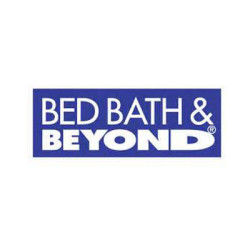Top Class Actions’s website and social media posts use affiliate links. If you make a purchase using such links, we may receive a commission, but it will not result in any additional charges to you. Please review our Affiliate Link Disclosure for more information.

In its motion for dismissal filed last week, defendant Bed Bath & Beyond Inc. argues the term “Egyptian” refers solely to the fabric’s country of origin, not to the type of fibers used.
Contrary to plaintiff Marta Rendon’s allegations about the fiber length and fabric quality of Egyptian cotton, the company claims its labeling makes no representations about those aspects of the product.
In her Bed Bath & Beyond class action lawsuit filed earlier this summer, Rendon challenged the “100% Egyptian Cotton” representation on the packaging of certain bedsheets sold by the home furnishings retailer. She says third-party testing revealed that the sheets she bought from the defendant actually contained only 16 percent Egyptian cotton.
The difference between genuine Egyptian cotton and cheaper varieties makes a significant difference in the quality of the finished product, according to Rendon. Egyptian cotton’s longer fiber length allows it to be spun into finer yarn, which makes for a softer feel when woven into fabric. Dyed Egyptian cotton also tends to have a richer color, since it absorbs dyes more readily than cheaper cottons.
Rendon believes Bed Bath & Beyond purposely exploits the good reputation of Egyptian cotton to sell an inferior product at a higher price. By putting a “100% Egyptian Cotton” label on sheets that contain only a fraction of Egyptian cotton, the defendant can charge a premium price for a cheaper product and get shoppers to pay more for a product they might not have bought in the first place, she claims.
Bed Bath & Beyond now claims Rendon has misstated the issue. The company says cotton sourced from Egypt comes in a wide range of fiber lengths. The “extra long staple” cotton that Rendon tested for is only one such variety, the company claims. Therefore, saying the sheets contain “100% Egyptian Cotton” is not a representation about fiber quality, the company claims.
Bed Bath & Beyond further argues that Rendon’s test can’t be relied on, as it tests the product after it has gone through a manufacturing process that “mashes and truncates the original fiber length.”
The company also challenges Rendon’s bid to bring her claims on behalf of a proposed plaintiff Class that would include other sheet purchasers from outside her home state of Florida. Bed Bath & Beyond argues the Florida federal court has no jurisdiction over non-residents’ claims.
Other retailers have faced similar litigation over their sheets’ fiber content. Walmart was hit with a similar false advertising class action lawsuit last November over sheets it sold that originated from Indian textile company Welspun India. Walmart was accused of falsely labeling the sheets as “100% Egyptian Cotton” even after Welspun allegedly admitted to using inferior cotton in its products.
Rendon is represented by attorney Angela Arango-Chaffin of The Chaffin Law Firm.
The Bed Bath & Beyond Mislabeled Sheets Class Action Lawsuit is Rendon v. Bed Bath & Beyond Inc., Case No. 9:17-cv-80960-DMM, in the U.S. District Court for the Southern District of Florida.
UPDATE: The Bed Bath & Beyond Mislabeled Sheets class action lawsuit was voluntarily dismissed on October 24, 2017.
ATTORNEY ADVERTISING
Top Class Actions is a Proud Member of the American Bar Association
LEGAL INFORMATION IS NOT LEGAL ADVICE
Top Class Actions Legal Statement
©2008 – 2024 Top Class Actions® LLC
Various Trademarks held by their respective owners
This website is not intended for viewing or usage by European Union citizens.














